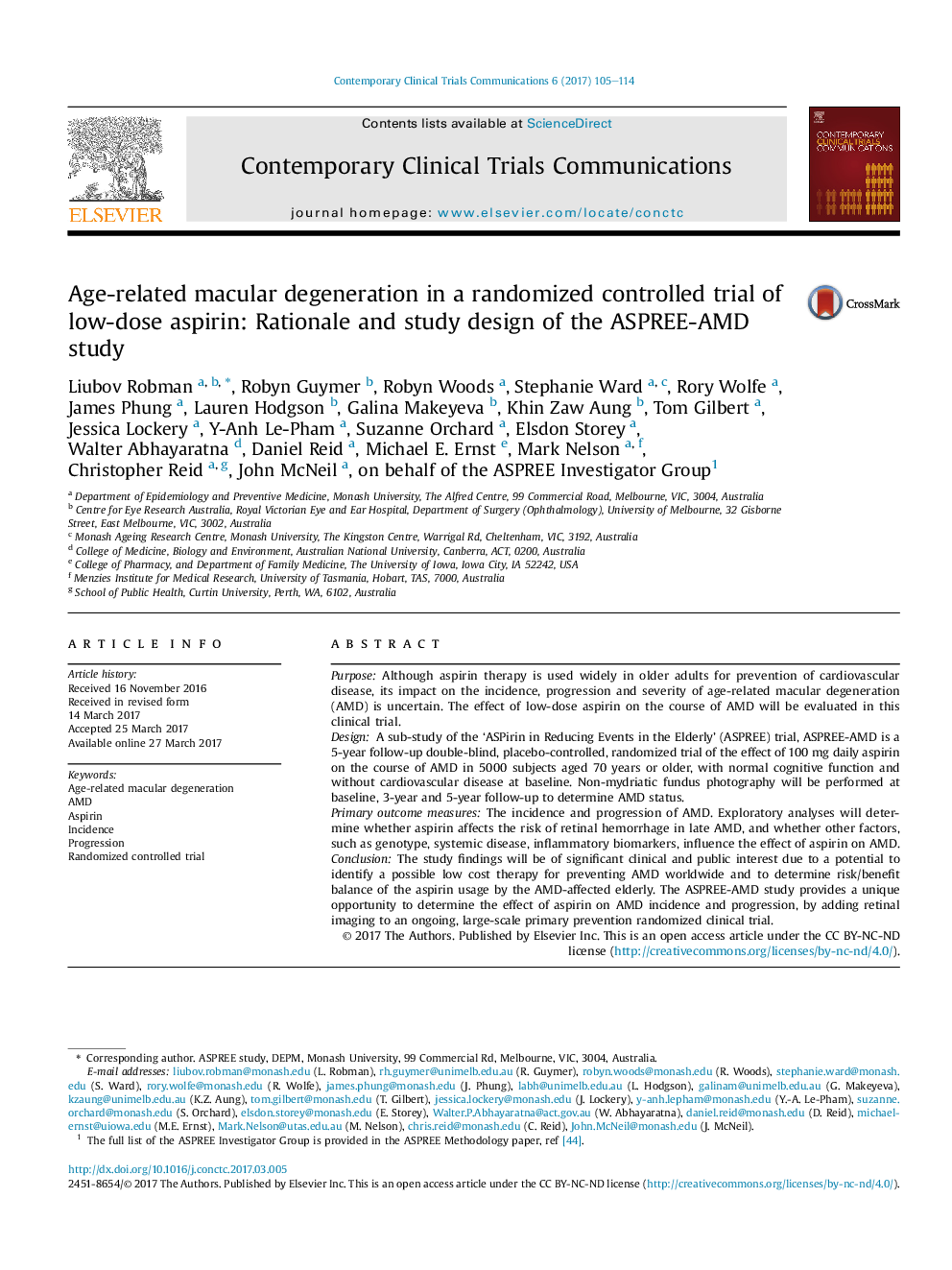| Article ID | Journal | Published Year | Pages | File Type |
|---|---|---|---|---|
| 5549679 | Contemporary Clinical Trials Communications | 2017 | 10 Pages |
PurposeAlthough aspirin therapy is used widely in older adults for prevention of cardiovascular disease, its impact on the incidence, progression and severity of age-related macular degeneration (AMD) is uncertain. The effect of low-dose aspirin on the course of AMD will be evaluated in this clinical trial.DesignA sub-study of the 'ASPirin in Reducing Events in the Elderly' (ASPREE) trial, ASPREE-AMD is a 5-year follow-up double-blind, placebo-controlled, randomized trial of the effect of 100Â mg daily aspirin on the course of AMD in 5000 subjects aged 70 years or older, with normal cognitive function and without cardiovascular disease at baseline. Non-mydriatic fundus photography will be performed at baseline, 3-year and 5-year follow-up to determine AMD status.Primary outcome measuresThe incidence and progression of AMD. Exploratory analyses will determine whether aspirin affects the risk of retinal hemorrhage in late AMD, and whether other factors, such as genotype, systemic disease, inflammatory biomarkers, influence the effect of aspirin on AMD.ConclusionThe study findings will be of significant clinical and public interest due to a potential to identify a possible low cost therapy for preventing AMD worldwide and to determine risk/benefit balance of the aspirin usage by the AMD-affected elderly. The ASPREE-AMD study provides a unique opportunity to determine the effect of aspirin on AMD incidence and progression, by adding retinal imaging to an ongoing, large-scale primary prevention randomized clinical trial.
